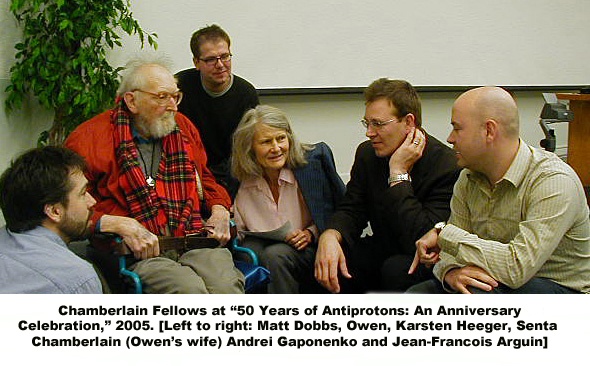Owen Chamberlain Fellowship
Chamberlain Postdoctoral Fellowship in Experimental Particle Physics & Cosmology
The fellowship provides recent (<2 years since degree) PhD graduates opportunities to work on the experimental research program of the Physics Division, including: high-energy collider physics; direct dark matter searches; cosmology using Type Ia Supernovae, baryon acoustic oscillations, and the cosmic microwave background; rare decay experiments; and neutrino physics. In all these areas the Physics Division follows a long tradition of advanced detector development as well as scientific data analysis and discovery.
The 2025 Chamberlain Fellowship is now open for applications.
Please see the posting on Academic Jobs Online.
View the list of current and former Chamberlain Fellows
2020 Video Tour of LBNL Physics Labs
As employees of Berkeley Lab, Chamberlain fellows work in a research environment synonymous with scientific excellence. Sixteen Nobel Prizes are associated with Berkeley Lab, nine of them in physics. The Fellowship honors Owen Chamberlain (Nobel Prize 1959), who, together with Emilio Segre, Clyde Wiegand, and Thomas Ypsilantis, discovered the anti-proton at the Berkeley Bevatron in 1955.

Berkeley Lab is a truly multidisciplinary environment, with sixteen scientific divisions in addition to Physics, and extensive ties with the adjacent University of California, Berkeley including many centers and activities (for example BCG and BEPP. Berkeley Lab divisions include Accelerator Technology and Applied Physics, Nuclear Science, Engineering, Computational Research, Scientific Networking, and the National Energy Research Scientific Computing Center.